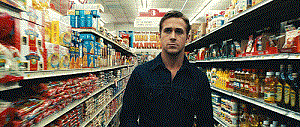 The concept of ethical shopping was first mentioned in a UK-based magazine titled Ethical Consumer in 1989. The magazine offered ratings of companies based on such criteria as animal rights, human rights, pollution and toxics. The Ethical Consumer Research Organization believed that informing potential consumers on the levels of social and environmental responsibility will help them make more conscious choices. The latter would lead to greater support of ethical businesses and pushing other companies to follow. Let us try to see whether ethical shopping really works this way and changes the world we live in.
The concept of ethical shopping was first mentioned in a UK-based magazine titled Ethical Consumer in 1989. The magazine offered ratings of companies based on such criteria as animal rights, human rights, pollution and toxics. The Ethical Consumer Research Organization believed that informing potential consumers on the levels of social and environmental responsibility will help them make more conscious choices. The latter would lead to greater support of ethical businesses and pushing other companies to follow. Let us try to see whether ethical shopping really works this way and changes the world we live in.
Whom Are We Buying from?
People have been used to buying goods without giving some thought to how they were manufactured. How did the factory treat its workers? Where were the materials bought and under which conditions were they stored? Where do the raw materials come from? How were they grown, mined, etc.? Knowing this information may help us to make a decision of whether we want to support a particular business or not. We can choose to buy from those with better conditions for workers or those who use alternative sources of energy, and believe that our money will serve as reinforcement for them. This is where ethical shopping or ethical consumerism comes.
Ethical Shopping in the World
Ethical consumerism is based on the idea of “dollar voting”. Our buying behavior is not just price-based, but is a result of our moral choices. This means that we buy according to our beliefs: if we assume that a business is more worthy than another one, we will buy from it. In the long run, ethical shopping is supposed to eliminate harmful and unethical businesses and leave those who care for people and environment.
The wave of ethical shopping has spread around the world. For example, Ethical Consumer Group in Australia runs the project Shop Ethical! in which it informs consumers on companies and their “environmental and social record”. Company ratings are based on the following categories: environment, people, animals, politics, and product sustainability. Attention to ethical consumerism has led to standards and labelling (Kosher, Local food, Grass fed beef, vegan, etc).
The Controversy
While there are obligations for businesses to follow the standards and use labelling for their products, we cannot control and monitor all the factories that produce things we consume. We simply do not have the resources to control the working conditions and production processes in every country of the world. The Environmental Justice Foundation reports that 6 out of 7 major cotton producers use child labor.
Let us suppose that we buy only ethical goods. Will this change the situation in developing countries? Let us assume that we can force standards and regulations onto factories in China whose products are imported to the US. This will probably only create sections with a factory that follow the standards, but the rest of the factory will operate as it has before. What we need to do is to advocate change, and it might take a very long time.
Ethical Consumerism and the Hope for Change
Ethical consumerism is a robust concept that helped to somewhat change the way businesses operate. We need to use our consuming power to facilitate change further. However, it should be done not through sanctions and strict standards, but through information campaigns and cooperation with the state and civil society instruments. Only then we can hope that ethical shopping will help us “create a better world,” as the Ethical Consumer Group in Australia calls us to do.
